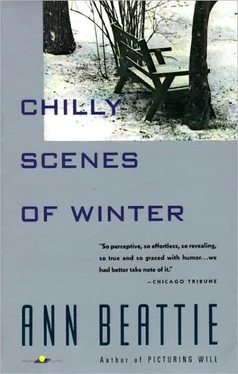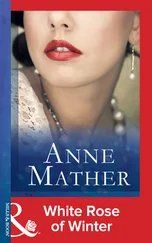Ann Beattie - Chilly Scenes of Winter
Здесь есть возможность читать онлайн «Ann Beattie - Chilly Scenes of Winter» весь текст электронной книги совершенно бесплатно (целиком полную версию без сокращений). В некоторых случаях можно слушать аудио, скачать через торрент в формате fb2 и присутствует краткое содержание. Год выпуска: 1991, Издательство: Vintage, Жанр: Современная проза, на английском языке. Описание произведения, (предисловие) а так же отзывы посетителей доступны на портале библиотеки ЛибКат.
- Название:Chilly Scenes of Winter
- Автор:
- Издательство:Vintage
- Жанр:
- Год:1991
- ISBN:нет данных
- Рейтинг книги:5 / 5. Голосов: 1
-
Избранное:Добавить в избранное
- Отзывы:
-
Ваша оценка:
- 100
- 1
- 2
- 3
- 4
- 5
Chilly Scenes of Winter: краткое содержание, описание и аннотация
Предлагаем к чтению аннотацию, описание, краткое содержание или предисловие (зависит от того, что написал сам автор книги «Chilly Scenes of Winter»). Если вы не нашли необходимую информацию о книге — напишите в комментариях, мы постараемся отыскать её.
Chilly Scenes of Winter — читать онлайн бесплатно полную книгу (весь текст) целиком
Ниже представлен текст книги, разбитый по страницам. Система сохранения места последней прочитанной страницы, позволяет с удобством читать онлайн бесплатно книгу «Chilly Scenes of Winter», без необходимости каждый раз заново искать на чём Вы остановились. Поставьте закладку, и сможете в любой момент перейти на страницу, на которой закончили чтение.
Интервал:
Закладка:
“I thought you said the old men depressed you.”
“So we can eat at a table.”
“I said that to you before.”
“Okay. That’s what we’ll do then,” Sam says, leaving the bathroom.
Charles sighs. He was all set for hot pastrami and potato salad. He leans back to relax, knocking over a shampoo bottle on the edge of the tub. He retrieves it, leans back again. He thinks about how nice it would be to be a fish, a trout, maybe, fanning his gills in the dark, cold water. A trout is a phallic symbol. He shakes the thought out of his head. “I know too much,” he says out loud. He picks up the soap and makes a lather, drops it back into the soap dish. It slips out. He reaches into the water for it, then realizes that it is his bar of soap, and if he wants to be wasteful, he can be. His mother used to nag him about putting the soap back in the dish. “If you’re so smart you can put the soap back in the dish so the next person who bathes can have more than a chip.” Saturday. Maybe something will happen and he can get out of it.
“It’s started to snow,” Sam hollers.
“Did you hear me?” Sam hollers again. “It’s snowing.”
“Yeah,” Charles says. “I heard it was supposed to snow.”
“I really blew it,” Sam says. “I should have gone out for food.”
Charles runs a little hot water into the tub, swirls it around with his foot. He thinks back on his day; his boss’s son came in to meet him, and he disliked him. He had on an argyle vest and black loafers, and mumbled like Marlon Brando. He had Brando’s gestures, too — a wave of the hand to dismiss something (usually his own statement), a turn of the head to look first away, then down. He said very little, and what he did say was so softly spoken that Charles couldn’t pick up on anything except the wave of the hand and the ironic laugh that followed. He is glad not to have children. He remembers sitting on a stool in his father’s workroom. “You’ve heard of screwing, right?” He is glad he doesn’t have a child he would have to explain sex to. Betty. Does Betty want to get married and have children? She seems to want only reports that she can type. He asked her today for her phone number. He said that he intended to call her to invite her to a small party he was giving soon. What small party? He doesn’t know anybody. At the last minute he chickened out, couldn’t say the word “date.” Betty looked very hopeful all the same. She wrote the number, very efficiently, on his memo pad, coming around to his side of the desk to do it. Laura would know what her perfume was. A very heavy scent, obviously fake. Everything about Betty is obvious: the clothes she wears betray her bulges, the perfume is meant to draw attention. Today she had on one of the new longer skirts (he saw this in last week’s Sunday Times: “the new longer skirts,” they were called) and a pale blue blouse that wasn’t bad. Except that she had on some ugly piece of jewelry that hung down the front of it. And the black boots. Maybe he could ask her to go puddle jumping.
The phone rings. Charles sits up, trying to hear Sam’s end of the conversation. It sounds as though Sam is mumbling. Maybe Sam has left and has been replaced by his boss’s kid.
“It was Pete,” Sam hollers. “I told him you were in the tub. He said you don’t have to call back, but he wanted to remind you to act surprised about the Honda Civic.”
“Oh, Christ,” Charles says.
“You didn’t tell me he bought a new car.”
“It’s not the first thing I’d think to tell you about.”
“He sounds happy as hell,” Sam says.
“She’ll ruin it for him. Just give her time,” Charles says. He lifts the stopper and puts it in the soap dish. He lets most of the water drain out before he reaches in for the soap.
“I don’t want to rush you, but if we’re taking my car; we’d better get out there before the lock re-freezes,” Sam says. He is drinking V-8 and listening to the stereo through the headphones. He screams the statement. Charles nods, goes into his bedroom and throws the towel over the lamp. He puts on underwear, goes through his drawer looking for a clean pair of jeans. His clothes are all dirty. He has to go to the laundromat. Maybe on the way to his mother’s. Saturday. He lies on the bed, suddenly tired. He flips the bedspread over him. He looks like a mummy. He closes his eyes. A party he’s giving. My God. Call Audrey and the cripple, ask Pete to stop by? Have Sam carry around trays of little crackers with bits and pieces of things on top?
His mother and father used to give birthday parties for him. His father would blow up balloons on the bicycle pump and hang them on crepe paper that was strung from tree to tree in the back yard. When the pin oak died there was nowhere left to string them to, so the crepe paper tapered down to his mother’s clothesline — one of those metal things that look like an umbrella blown inside out. That was his last party. After that his father was dead. First the pin oak, then his father. Once he had a chocolate cake shaped like a football. Another time three kids gave him the same present, and he and his father rode down to the hospital to donate the other two to a playroom there. His father was pronounced D.O.A. at that hospital not long after that. He and his mother went to the hospital in the police car. Inside, Charles wanted very much to think of an excuse to go back to that playroom to see if the toys were still there. His attention kept wandering. His mother kept crying. The toy was called “Mr. Jumping Bunny”—a metal bunny that could be wound with a key to jump. He got a lot of nice presents at his birthday parties. One of his all-time favorites was a pair of wooden stilts that he wore to school to march in the Halloween parade, and that he later walked around the cellar with, pretending to be his dead father. Once he and his father had a “fencing” duel with the stilts, and his mother had run out into the backyard to stop them. “Those huge pieces of wood! What if one of you had an accident?” When Pete first married his mother he used to try to initiate games with Charles, but he never wanted to play because Pete didn’t know how to improvise. He played everything straight, and it was a big bore: with badminton rackets he played badminton (his father had made a game of picking dandelions from the lawn and hitting them as though they were baseballs and the badminton rackets bats), with the Monopoly board he played Monopoly, there were no unexpected twists to the card games they played (his father had asked, “Ever play 52 pickup? Want to?”).
Charles turns on his side, facing the wall. He closes his eyes and tries to remember his father. He can’t. He gets an image of a black-haired man with a handlebar mustache and blue eyes, the man who was painted on the mug Charles gave him one Father’s Day. He closes his eyes again and tries to picture Pete. He sees him perfectly, opens his eyes immediately.
He gets up and puts on a pair of dirty pants, a blue shirt, and an old sweater.
“Ready to go?” he asks. Sam looks at him blankly, takes the headphones off.
“Ready to go?” Charles says.
“Oh. Sure. Let me get my coat.”
They put on their coats (he will have to take all that stuff out of the closet so Sam will have some place better than the upright ironing board to hang his things on).
“If you want to bring any of your furniture over here, even if you just want to stick it in the attic to store, feel free. We could use some tables and things like that.”
“Oh. That’s very nice of you,” Sam says, starting the car. “If you’d like me to, I can bring the coffee table over and the round table.”
“Sure. Bring it. I don’t care what the place looks like.”
Читать дальшеИнтервал:
Закладка:
Похожие книги на «Chilly Scenes of Winter»
Представляем Вашему вниманию похожие книги на «Chilly Scenes of Winter» списком для выбора. Мы отобрали схожую по названию и смыслу литературу в надежде предоставить читателям больше вариантов отыскать новые, интересные, ещё непрочитанные произведения.
Обсуждение, отзывы о книге «Chilly Scenes of Winter» и просто собственные мнения читателей. Оставьте ваши комментарии, напишите, что Вы думаете о произведении, его смысле или главных героях. Укажите что конкретно понравилось, а что нет, и почему Вы так считаете.












